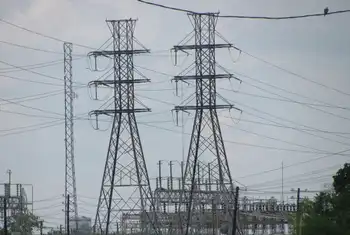BP apologizes For Questionable Calif. Power Trades
By
NFPA 70e Training - Arc Flash
Our customized live online or in‑person group training can be delivered to your staff at your location.

- Live Online
- 6 hours Instructor-led
- Group Training Available
Wednesday was the deadline for the three firms -- Reliant Resources Inc. ((RRI.N)), Enron Corp. ((ENRNQ.PK)) and a unit of BP -- to tell FERC why they did not manipulate electricity prices during California's energy crisis of 2000-01, and why their wholesale trading rights should not be revoked.
FERC investigators on March 26 found that BP and Reliant traders apparently manipulated energy prices at the Palo Verde electricity trading hub in Arizona.
"We do regret and apologize for the behavior of the trader, which was inappropriate, disappointing and embarrassing," BP spokesman Neil Chapman said, summarizing the firm's filing at FERC. The complete filing was not immediately available.
BP said it did not manipulate the market, and told FERC that revoking its license would be an "extreme measure."
Revoking so-called "market-based rate authority" to punish wrongdoing would be unprecedented in FERC's 25-year history.
Reliant met the deadline, but its filing was not immediately available, a spokesman said. Enron was not available for comment.
FERC in March cited telephone transcripts showing that BP and Reliant traders attempted to drive up electricity prices through circular transactions on an electronic trading platform operated by Bloomberg.
Bloomberg LP is a main rival of news and information provider Reuters Group Plc ((RTR.L)).
The two questionable deals made by one of its traders "didn't result in financial benefit or loss to BP, or the trader involved, and didn't harm consumers," BP's spokesman said. The trader was fired after BP learned of his actions, he said.
The trades were for a six-month contract delivered at Palo Verde, and were meant to allow the trader to "mark-to-market" his current trading position, he said.
"We concluded that there wasn't any market impact," he said.
FERC also said that now-bankrupt Enron used its giant EnronOnline Internet trading platform to try to manipulate natural gas prices at the Henry Hub in Louisiana. Enron earned about $3.2 million from the activity, FERC said.
Federal law charges FERC with granting wholesale electricity trading rights to companies. FERC can revoke that authority under extreme conditions.
BP warned that FERC taking such action would "have a rippling effect throughout the wholesale market" and could reduce competitors and discourage new entrants.
Separately, FERC staff last month recommended that commissioners issue "show cause" orders to 37 companies and municipal utilities, including Enron and Reliant, that allegedly violated California's trading rules. Companies could be forced to disgorge unfair profits if they cannot justify their actions.
FERC commissioners are expected to act on that staff recommendation at an April 30 meeting.
Reuters 2001. All rights reserved. Republication or redistribution of Reuters content, including by caching, framing or similar means, is expressly prohibited without the prior written consent of Reuters. Reuters and the Reuters sphere logo are registered trademarks and trademarks of the Reuters group of companies around the world.











